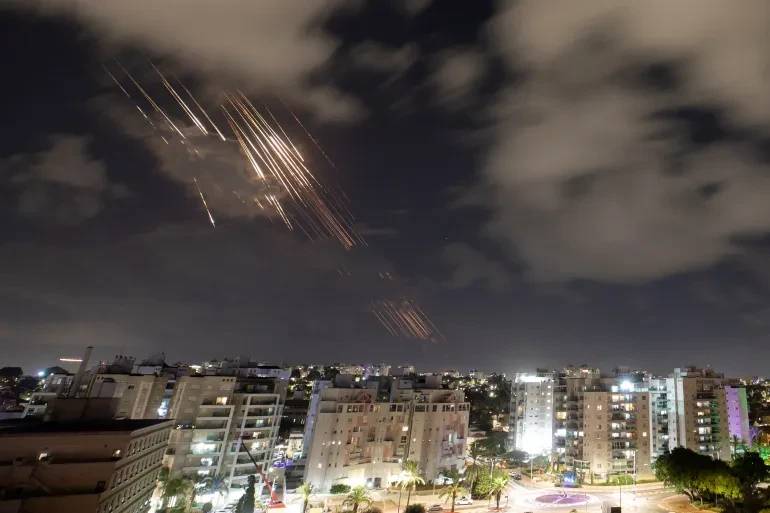Iran’s Plan to Strike Back Against the U.S.
Iran’s Military Preparations Following U.S. Attacks
Loading...

Iran’s IRGC says tens of missiles fired in retaliaition for the killing of Hezbollah, Hamas and IRGC officials.
Escalation of Tensions in the Middle East
In a significant escalation of hostilities, Iran has launched a missile attack against Israel, marking a dramatic response to the recent killings of senior officials from Hezbollah and Hamas. The missile barrage sent shockwaves through Israel, prompting citizens to rush to bomb shelters as alarms blared across major cities, including Jerusalem and Tel Aviv.
Details of the Attack
The Iranian missile strike occurred late on Tuesday, with reports indicating that tens of missiles were fired towards Israeli territory. According to Iran's Islamic Revolutionary Guards Corps (IRGC), this military action was a direct retaliation for the deaths of prominent figures, including Hezbollah leader Hassan Nasrallah and Hamas leader Ismail Haniyeh. The IRGC stated, “In response to the martyrdom of Ismail Haniyeh, Hassan Nasrallah, and [IRGC Guards commander] Nilforoshan, we targeted the heart of the occupied territories”.
Despite the intensity of the attack, Israeli military spokesman Daniel Hagari reported that there were no immediate casualties from the missile strikes, although at least two individuals sustained light injuries from shrapnel in the Tel Aviv area. Hagari reassured the public that the situation was under control, stating that the army did not perceive any further threats in the airspace.
Iranian Claims and Military Readiness
Iranian state media claimed that approximately 80% of the missiles launched successfully hit their intended targets. However, the Israeli military countered that a “large number” of the missiles were intercepted before reaching their destinations. The IRGC warned that any retaliation from Israel would provoke an even more devastating response from Tehran, indicating a potential for further escalation in the conflict.
A senior Iranian official disclosed that the order for the missile launch came directly from Supreme Leader Ayatollah Ali Khamenei, who remains in a secure location amid the ongoing tensions.
International Reactions and Regional Implications
In the wake of the missile attack, the United States has expressed its readiness to provide additional defensive support to Israel. A U.S. defense official stated that American forces are positioned to protect U.S. interests in the region following the Iranian missile strikes. Meanwhile, Iranian-backed groups in Iraq have threatened to target U.S. bases if the U.S. intervenes in the conflict or if Israel utilizes Iraqi airspace against Iran.
The missile strikes come on the heels of Israeli ground raids into Lebanon, marking one of the most significant escalations in regional warfare since the outbreak of fighting in Gaza last October. Reports from Beirut indicated that some residents celebrated Iran's missile attack, with gunfire and fireworks erupting in the streets.
Jordan's Response and Broader Concerns
In neighboring Jordan, the civil aviation authority temporarily suspended air traffic following the missile attack. The country’s air defense systems reportedly intercepted several missiles and drones that entered Jordanian airspace, highlighting the regional implications of the conflict.
UN Secretary-General Antonio Guterres condemned the escalating violence in the Middle East, calling for an immediate ceasefire. He expressed concern over the “escalation after escalation” in the region, emphasizing the urgent need for diplomatic efforts to halt the conflict.
Conclusion
The missile attack by Iran against Israel represents a critical juncture in Middle Eastern geopolitics, with the potential for further military confrontations. As both sides brace for possible retaliation, the international community watches closely, hoping for a resolution to the escalating tensions that threaten to engulf the region in broader conflict.
Editor
Iran’s Military Preparations Following U.S. Attacks
Troops remain in five strategic locations, raising fears of renewed tensions and long-term occupation.
Opposition forces have taken control of the capital after a significant offensive. Here is how it unravelled.
